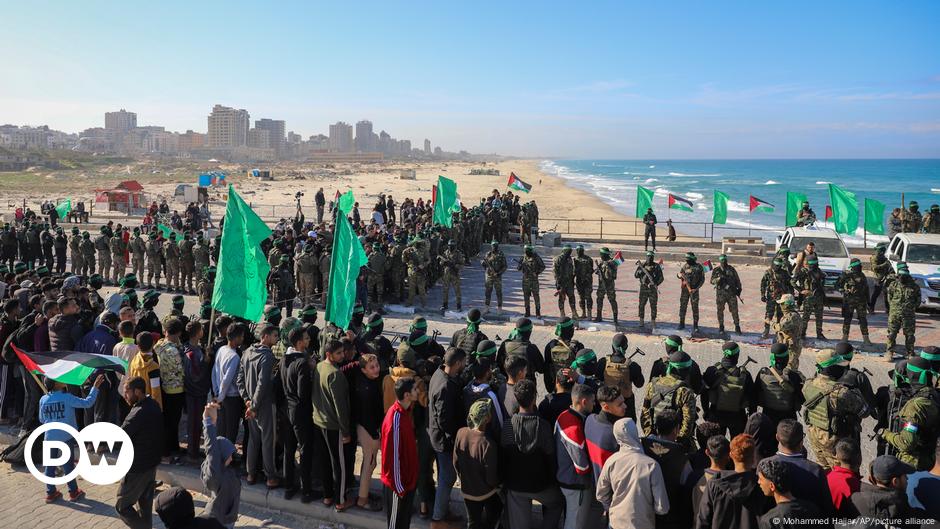
Trump’s Threats to Jordan and Egypt Regarding Palestinian Refugees
On February 11, 2025, Donald Trump issued a warning to US allies Jordan and Egypt, indicating that he may halt financial support if they refuse to accept Palestinian refugees fleeing from Gaza. In a recent press conference held in the Oval Office, Trump stated that it was possible he could withhold aid from these nations unless they agree to resettle Palestinians.
Trump’s remarks follow an earlier statement from the Egyptian government, which firmly rejected any agreements that would compromise Palestinian rights. This statement emerged after a meeting between Egypt’s top diplomat and the US Secretary of State in Washington, emphasizing Egypt’s position as a significant recipient of US foreign assistance.
As King Abdullah II of Jordan prepares for his visit to Washington, it’s essential to note his longstanding stance that the forced relocation of approximately 2 million Palestinians from Gaza crosses a "red line." This upcoming trip will mark the first official visit by an Arab leader to the United States since Trump’s reelection.
Additionally, the recent 90-day freeze on USAID funding has already affected Jordan, which relies heavily on US humanitarian aid during a time of economic struggles and high unemployment.
Palestinian Hostage Situation and Ceasefire Developments
On the same day, Trump commented on the ongoing hostage situation involving Hamas, stating that if all hostages were not released by midday Saturday, the current ceasefire would be canceled. Trump emphasized that the decision would ultimately rest with Israel, warning of severe repercussions if the hostages were not freed.
Hamas has announced that it would pause the release of hostages, accusing Israel of violating the terms of the ceasefire agreement. This development raises tensions as further exchanges had been anticipated.
In a related development, the Israeli military reported an increase in readiness levels around the Gaza Strip, declaring it necessary to respond effectively to any potential scenarios as the ceasefire appears to be in jeopardy.
Egypt’s Stance on Palestinian Displacement
During discussions with US Secretary of State Marco Rubio, Egyptian Foreign Minister Badr Abdel-Atty reiterated Egypt’s strong opposition to the displacement of Palestinians from Gaza. He expressed hope for coordination with the US to achieve just peace in the Middle East, aligning with the aspirations of the Palestinian people for their independent state.
This meeting followed contentious comments from Trump regarding his controversial proposal for local resettlement of Gaza residents, which has been categorically rejected by both Egypt and Jordan.
Changes in Palestinian Authority Payment Policies
In another significant development, Palestinian President Mahmoud Abbas announced the termination of payments previously made to families of Palestinians imprisoned or killed by Israeli forces. The funding will now be overseen by a government body within the President’s office, indicating a shift in policy that has long been a complicating factor in relations with the US.
Despite previous assertions by Abbas framing the payments as a social responsibility, this change is viewed as a response to consistent demands from various US administrations.
Trump’s Business Interests in the Middle East
Trump’s vision for the Gaza Strip has drawn attention not only for its political implications but also for its potential business interests for Trump and his family. The Middle East is increasingly being viewed as a significant arena for The Trump Organization, particularly with recent partnerships formed with Saudi Arabian enterprises.
This complex interplay between business and diplomacy underscores how regional developments can intertwine, influencing both political discourse and economic opportunities.
Hamas and the Hostage Release Postponement
Amidst escalating tensions, Hamas has declared an indefinite postponement of the next hostage release, citing violations of the ceasefire agreement by Israel. The situation remains fluid as the two sides navigate the complexities involved in the ongoing conflict.
These developments highlight the precarious balance of power in the region and the significant implications for both local and international stakeholders involved in the ongoing negotiations and humanitarian issues surrounding the Gaza situation.









